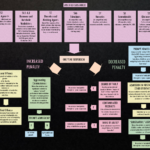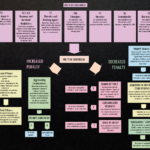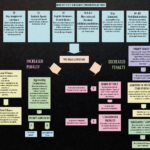Many people ask why some substances have received shorter penalties than others, for instance on Jon Jones getting one year suspension, while Gleison Tibau for instance received two years. I will try to explain.
The WADA prohibited list for “prohibited at all times” features 6 different categories of prohibited substance (S0-S5), plus additionally three prohibited methods (M1-M3) and each category has various subcategories of substance.
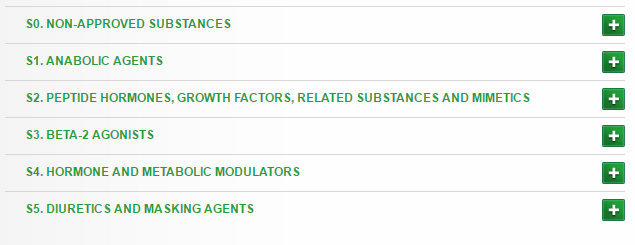

In addition, for testing conducted in competition there are further categories S6-S9 (There are also P1-P2 for certain sports).


Confusingly, they further break them down into “Specified Substances” and “non-Specified Substances” each category under the UFC/USADA policy getting different penalties.

Specified Substances – Starting point 1 year ban
S3 – Beta 2 Agonists
For example, Salbutemol and other medications for asthma and other breathing disorders.
S4.1-4.3 – Hormone and Metabolic Modulators
This includes Aromatase inhibitors such as Androstane (S4.1), Selective Estrogen Receptive Modulators (SERMs) such as Tamoxife (S4.2) and Anti Estrogens such as Clomiphine (S4.3)
S5 – Diuretics and Masking Agents
One of the vagaries of the WADA system is that masking agents are considered in a lesser manner than the drug they are used to mask.
S6b – Stimulants (In competition only)
Certain stimulants such as Ephidrene that are expressly specified by WADA (Some stimulants carry a 2 year starting point)
S7 – Narcotics (In Competition only)
Morphine, methadone, oxycodone and other narcotics.
S8 – Cannabinoids (In Competition only)
All cannabis related substances, including THC, CBD etc
S9 – Glucocorticoids (In Competition only)
Cortico-steroids such as Cortisone, commonly used for injury recovery, but have been abused in some sports due to their weight cutting properties
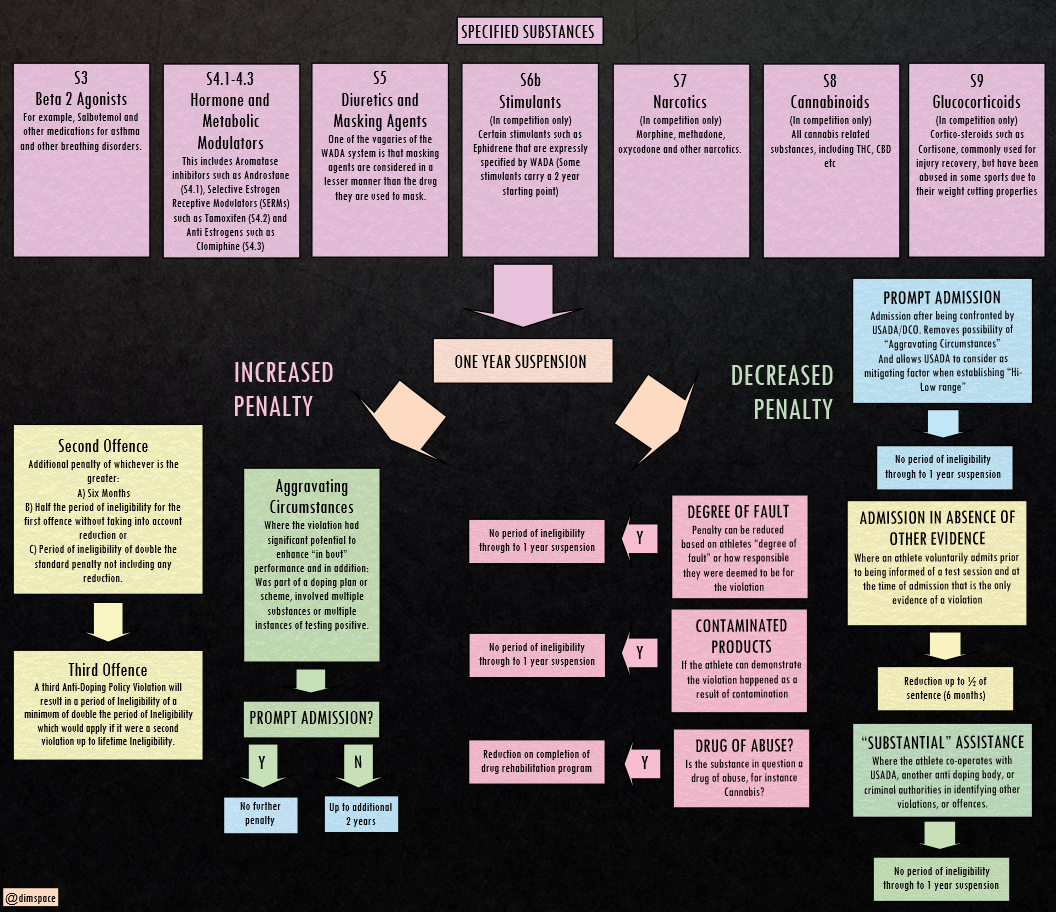
Non Specified Substances and Methods – Starting point 2 year ban

S0 – Any unapproved substance
With new substances constantly being developed this is WADA’s catch all category for anything that is either not approved by the FDA or relevant body in whichever country, still undergoing clinical trials or pre-clinical development, or anything aimed for non-humans, veterinary purposes etc.
S1 – Anabolic Agents
Your good old fashioned anabolic steroids, boldenone, drostanalone, etc etc
S2 – Peptide Hormones, Growth factors
This covers Hgh (Human growth hormone), substances such as GHRP-6 (growth factor releasing peptide) and IGF-1 (Insulin-like growth factor).
S4.4-4.5 – Myostatin and Metabolic inhibitors/modulators
A small subsection that includes such substances as Meldonium and Trimetazidine.
S6a. – Stimulants (In Competition only)
Some stimulants, not expressly “specified” by wada. Includes amfetamine, cocaine (Note that cocaine is a stimulant rather than a narcotic).
M1-M3 Prohibited methods
This includes any methods associated with blood doping (M1), IV’s and other methods intended to physically manipulate chemical elements in the body with a view to fooling doping controls (M2) as well as gene therapy (M3).
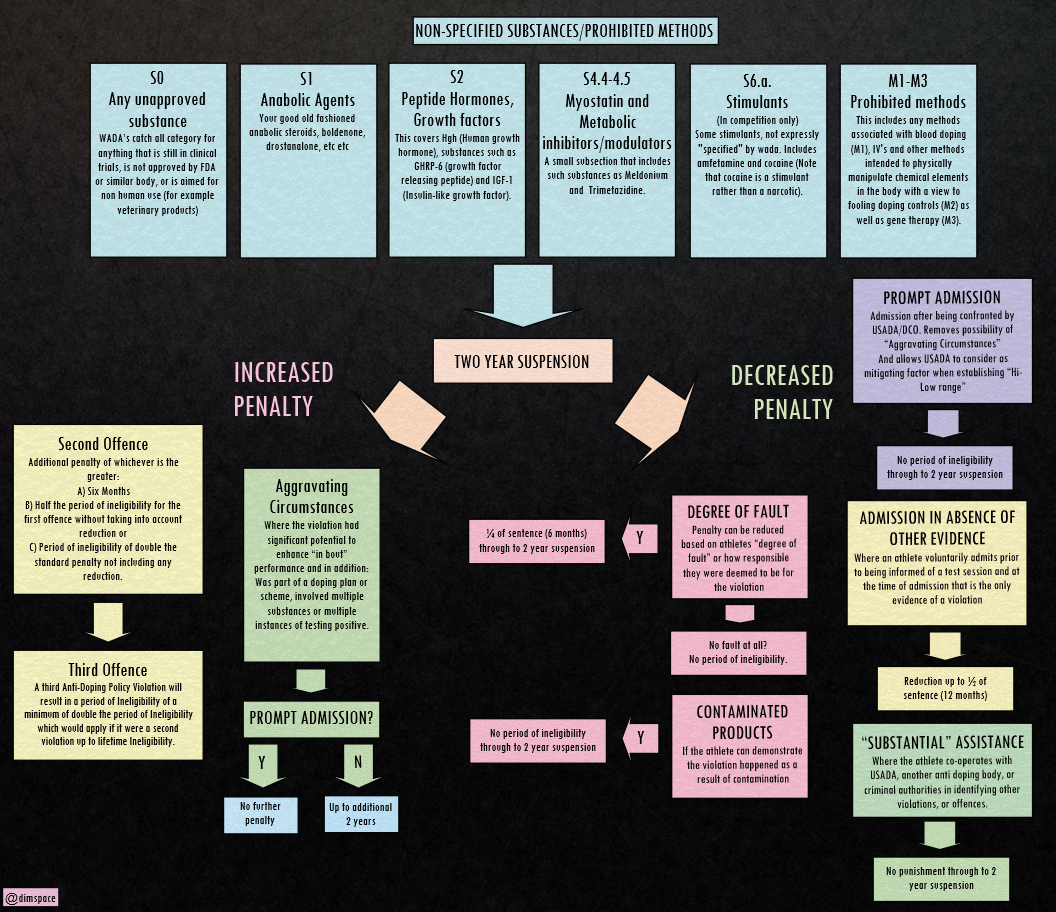
Other offences that draw suspensions
Evading, refusing, or failing to submit a sample (UFC ADP 2.3) – 2 to 4 years
“Evading Sample collection, or without compelling justification refusing or failing to submit to Sample collection after notification”
Wherabouts failures (UFC ADP 2.4) – 6 months to 2 years
Any combination of three Whereabouts Failures within a twelve-month period. This is subject to a potential reduction down to as little as 6 months depending on the athletes degree of fault. Note that athletes who regularly change their whereabouts and make it awkward for doping control officers automatically cannot get a reduction.
Tampering/attempted tampering with the doping control process (UFC ADP 2.5) – 2 to 4 years
Conduct which subverts the Doping Control process but which would not otherwise be included in the definition of Prohibited Methods (ie. outside of chemical and physical manipulation of sample etc). Intentionally interfering or attempting to interfere with a Doping Control official, providing fraudulent information to UFC or USADA, or intimidating or attempting to intimidate a potential witness.
Possession of a prohibited substance or method (UFC ADP 2.6) – 1-2 years
The athlete, or athlete support personnel being caught either with prohibited substances or for instance IV paraphernalia. Generally a 2 year ban, this can be reduced if it involves a specified substance.
Trafficking or attempted trafficking of prohibited substances or method (UFC ADP 2.7) – 4 years to life
Administration or attempted administration to an athlete a prohibited substance or method (UFC ADP 2.8) – 4 years to life
Covering anyone who administers prohibited substances to an athlete, coaches, trainers etc. If the offence includes the administration of prohibited substances to a minor, especially non-specified substances expect to see a life ban.
Complicity (UFC AP 2.9) – 2 to 4 years
Assisting, encouraging, aiding, abetting, conspiring, covering up or any other type of intentional complicity involving an Anti-Doping Policy Violation, Attempted Anti-Doping Policy Violation etc etc
Prohibited Association (UFC ADP 2.10) – 9 months to 2 years
Association by an Athlete or other Person in a professional or sport-related capacity with any Athlete Support Person who is either subject to a USADA suspension, or suspension/investigation from any other body in a way that would constitute a USADA violation. The ban of 2 years may be reduced to as low as 9 months depending on circumstances.
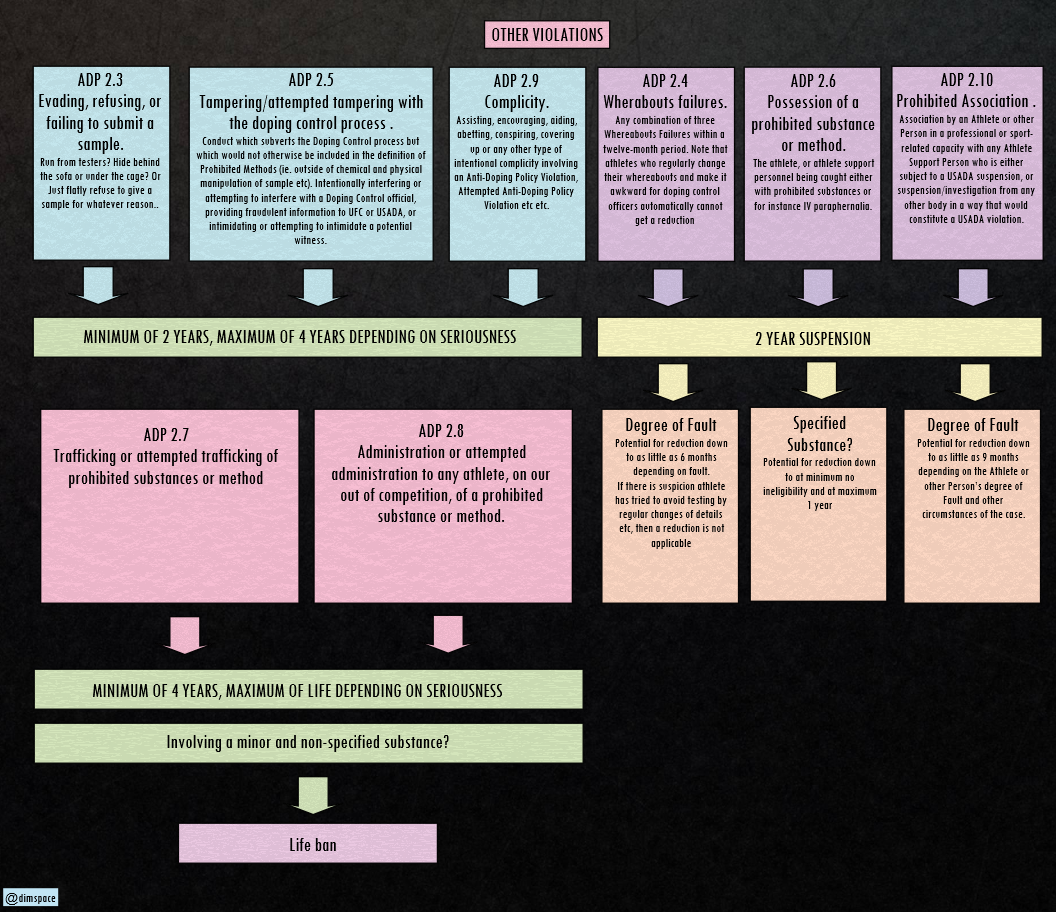
Potential for reductions
Reduction based on degree of fault/Contamination:
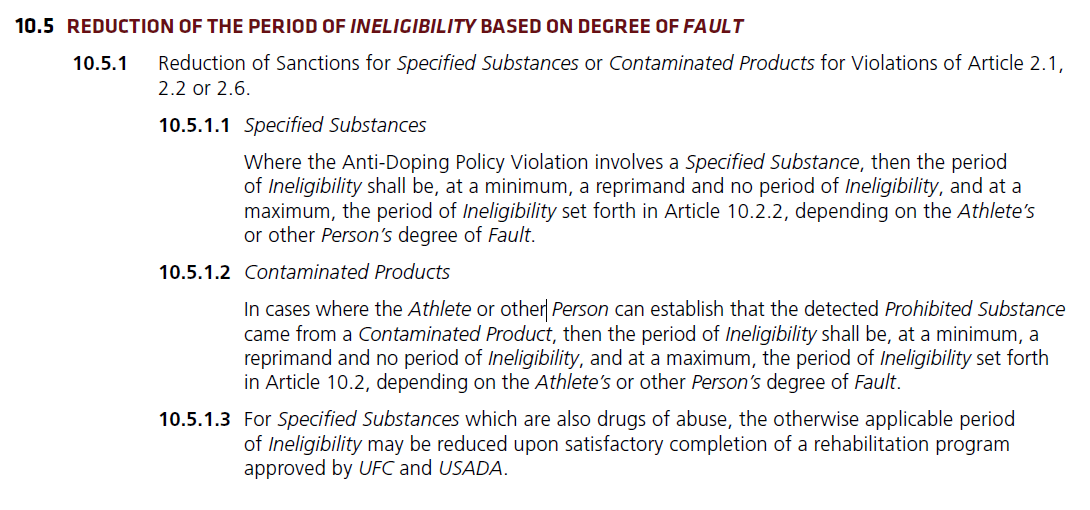
 Makes provision for as little as a reprimand for specified substances or contaminated products, or as little as 6 months for non-specified substances that would normally carry a two year penalty.
Makes provision for as little as a reprimand for specified substances or contaminated products, or as little as 6 months for non-specified substances that would normally carry a two year penalty.
“Substantial Assistance”
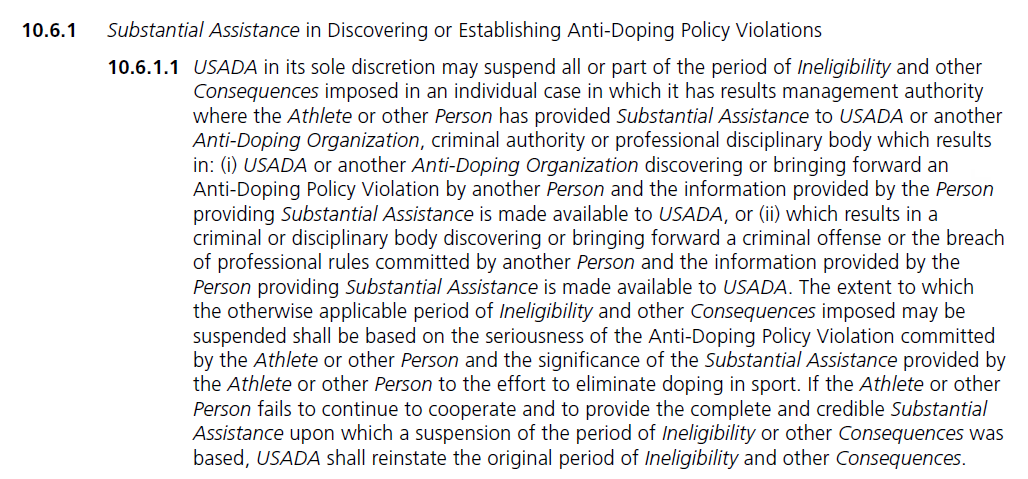
Or as Cro-Cop would put it “The Snitches Clause”. This usually comes into play for instance if an athlete has been supplied ped’s by a doctor and his assistance leads to the doctor being charged for either widespread doping or with a criminal offence.
Prompt admission of an anti-doping violation

This apples to any admission/declaration after being informed by USADA of an anti doping session. For example, as soon as the DCO (Doping Control Officer) has informed you they are here to test you. This includes any admission on the doping control form, as well as swiftly admitting PED use when informed by USADA of a positive test.
Admission in absence of other evidence

Admitting ped use or a violation prior to being informed by USADA of a test session.. Ony happens if an athlete takes PED’s and then racked with guilt decides to confess.
